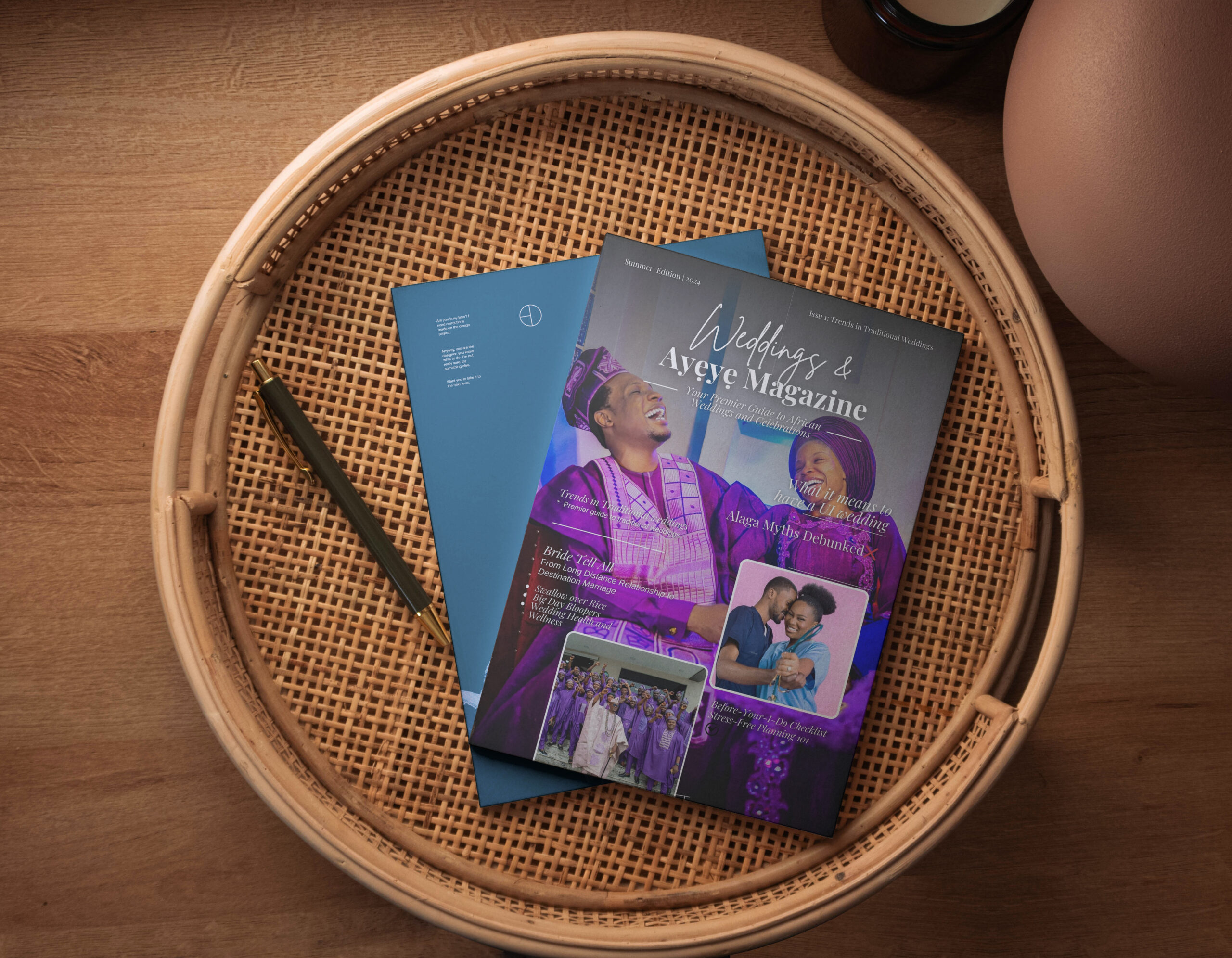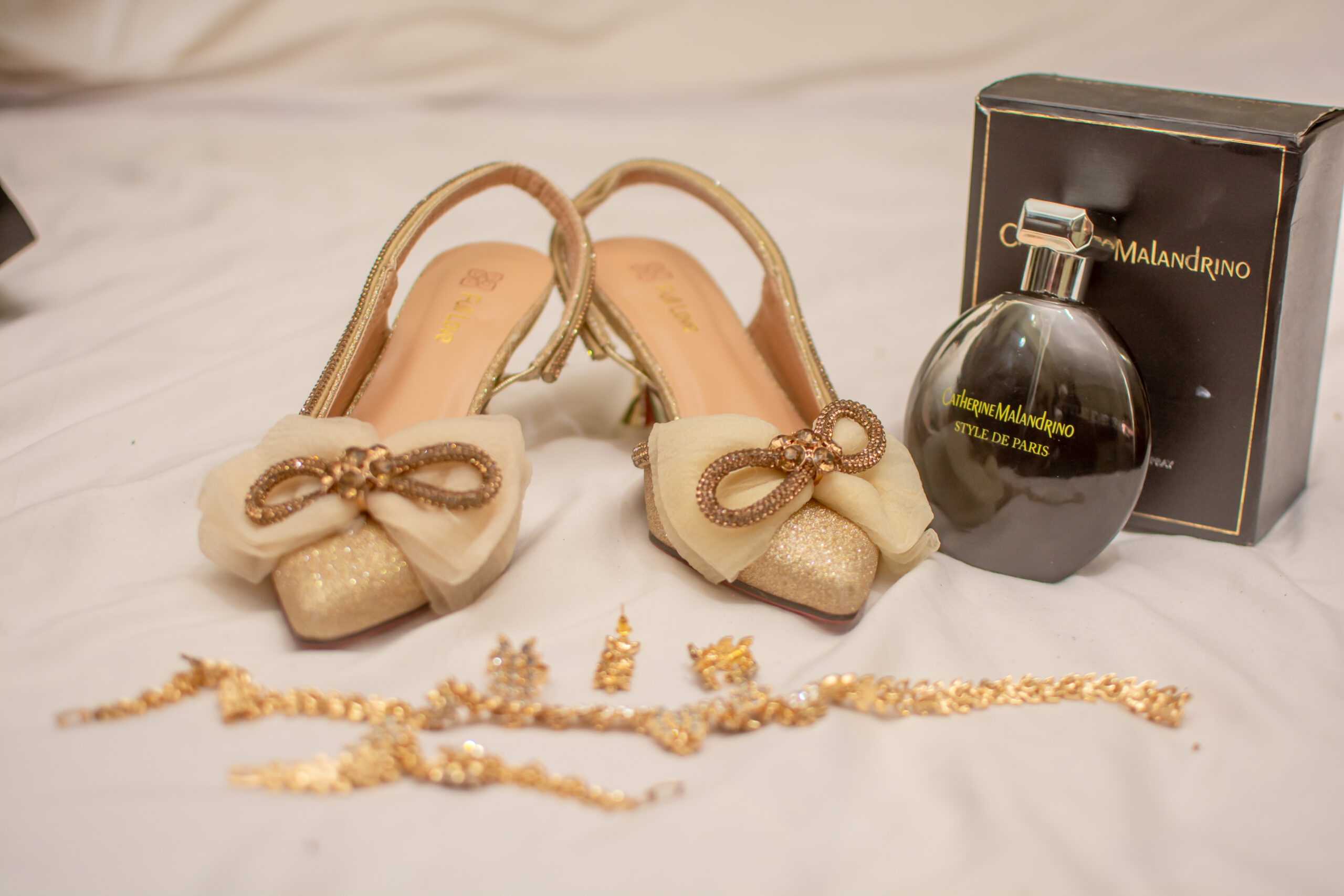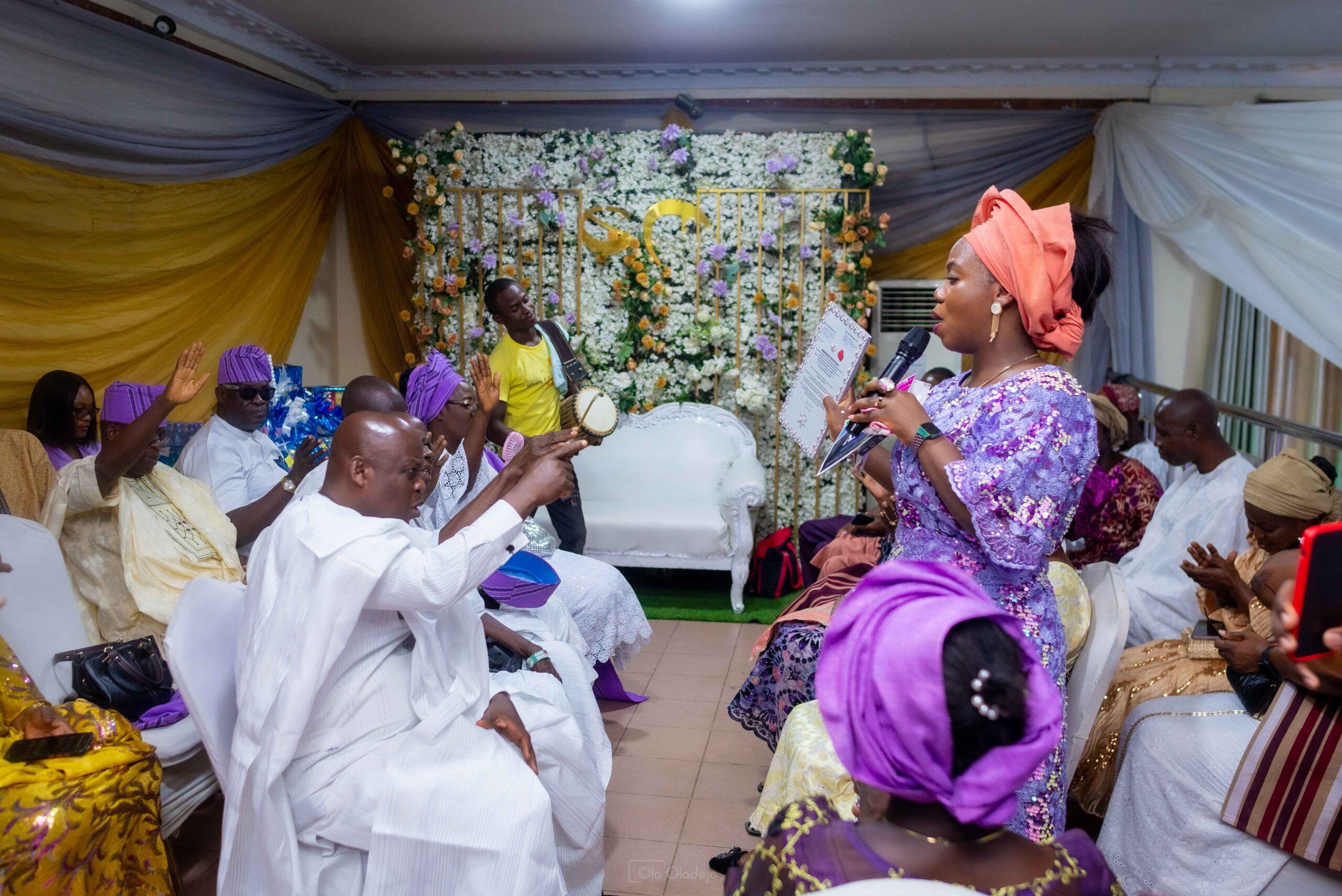1. Bride: Is the engagement ceremony better at my parent’s House?
Answer: The engagement ceremony is better held at the bride’s parents’ house. Just as the name implies, IGBEYAWO/IDANA means the groom alongside his family members is going to seek the bride’s hand in marriage and that can only be done with the approval of the bride’s parents. However, due to civilization and modernization, as well as other circumstances, people now use event centres. Some also prefer event centres because of a large number of people that the house may not take.
2. Bride: Does my groom really have to dobale? Isn’t that too much?
Answer: Idobale is an important part of the Yoruba traditional wedding because it is a humble greeting done to show that the groom has respect for the bride’s family and that he values their daughter who he wants to marry. The groom, alongside his friends and family members is made to prostrate on the floor in respect to his in-laws to ask for the hand of their daughter. The bride’s family then signal their acceptance by asking them to stand up and lead them back to their seats.
3. What’s the big deal about traditional marriage anyway?
Answer: Traditional marriage, especially, that of the Yorubas is a sacred and happy occasion, which symbolizes the union of two families. It is a covenant stage where the two families come together in the open to seal the love relationship of their children in the presence of friends, families and well-wishers. The groom’s family provides a bride price and other gifts to the bride’s family to show their commitment and appreciation.
4. Returned dowry? Why do some families send it back?
Answer: Dowry payments are traditionally seen as a test of the groom’s patience and endurance and a form of compensation to the bride’s family for raising her. In modern times, some families return the dowry despite advice to keep it, emphasizing that they are not selling their daughter. They maintain the practice of dowry payments but often return it, and make the groom give it to the bride in the presence of everyone.
5. Why does the bride only pick the Bible? What about the other gifts?
Answer: When the bride picks up the Bible, it symbolizes the acknowledgment of God as the foundation and cornerstone of the marriage. This act represents the couple’s commitment to building their relationship on Christian principles and values, with God as the central pillar guiding them through life’s challenges.
6. Left Side Seating: Why does the bride sit on the groom’s left?
Answer: Everyone’s heart is at the left side of the chest. It is also believed that the shape of the heart is same as the shape of love. The bride sits at the left side of the groom, where the heart is because it is believed that the wife should always be in the husband’s heart. Also, it is believed that with the wife at the left side, the husband will be able to protect her and with the right side/hand, he can fight against any negativity coming towards himself and the wife.
7. Why must the engagement letter be read by a member of the bride’s family?
Answer: Long before now, whenever an elderly person receives letter, the learned member of the elder ‘s family reads the letter to his/her ears. The engagement letter is presented to the bride’s parents by the groom’s family. The tradition is that someone that is learned in the bride’s family should read the letter to the bride’s parents for them to understand the content of the letter.
8. Why does the groom carry the bride to his Parents and not just hold her?
Answer: The husband carrying the bride to his parents signifies the IGBEYAWO and that he can’t take care of the bride alone; he needs the support of his parents in doing so.
9. Engagement items vs. cash: Why not just monetize it?
Answer: Engagement items are very compulsory. They are gifts given to the bride’s family to appreciate them for raising the bride. Besides, the gifts are shared by the members of the bride’s family, not only the parents. It is also a form of honour that the groom’s family are committed and mean business. Also, each of the engagement items has significance. Yam (Isu) is a symbol of fertility and prosperity, Honey (Oyin) signifies sweetness in the marriage, Salt (Iyo) represents the importance of adding flavor to life.
10. Why must my twin hand me over to my groom? What’s the tradition?
Answer: According to the Yoruba tradition, twins are partners. If a twin sister/brother doesn’t approve her twin sister’s marriage to the groom, it is believed that something negative can happen. It is also believed that a twin brother is the twin sister’s husband from heaven, so he must be happy with the marriage, which is shown by handing over the bride to the groom.



